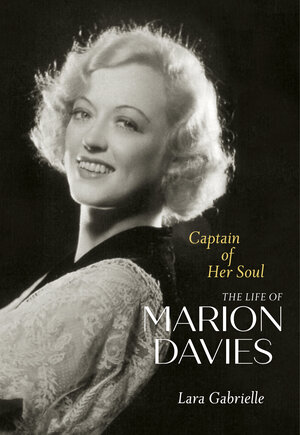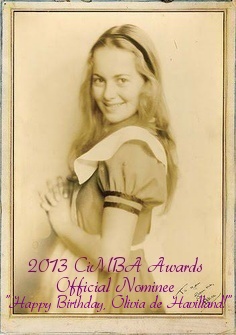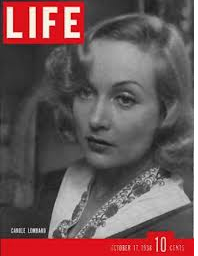
My good friend Caroline over at GARBO LAUGHS had the brilliant idea of putting together a blogathon, in which various film blogs are invited to participate in celebrating LGBT presence in films. As a longtime proponent of all things both film and gay, I have decided to have Backlots participate in this blogathon, and the film I have chosen to profile is that always classic, always relevant winner of 1972’s Best Picture, Best Actress, and Best Supporting Actor Oscars (along with 5 more for cinematography, editing, art direction, song, and sound)–the immortal “Cabaret.”
If I could talk about “Cabaret” every week, I would. It is one of my favorite musicals (though as I will discuss later, I call into question its status as a legitimate musical), and it’s really no wonder why. Not only is it a brilliantly constructed film on every level–scenery, costumes, sound, visual effects, acting, singing, dancing, the list goes on and on–but it has the added bonus of having Liza Minnelli (gay icon, reason #1 for my choosing this movie), at the peak of her career, bringing the house down with her powerhouse vocals and dancing ability. Now, I am a big Liza fan. I have seen her in concert 4 times, seen all her movies, and just generally adore her, so when one is a big Liza fan, it generally follows that one is also a big “Cabaret” fan. This movie IS Liza. In fact, at the last concert of hers that I went to, there was a little girl, no more than 6, who was dressed as Sally Bowles from Cabaret. Liza pulled her out of the audience, stood her onstage, and had her take a bow. And everyone knew exactly who she was supposed to be.
The second reason I chose this film for the blogathon is that the male lead (Michael York) is gay. Or, more accurately, “doesn’t sleep with girls.” We become aware of this fact early on in the film, during a scene in which Sally has been trying unsuccessfully to come onto him. She mutters “Maybe you just don’t sleep with girls…” and noting his silence, she changes her tone and says “Oh….you don’t…!” We come to learn that he has slept with three girls, and all 3 times were disastrous, prompting him to forget all about them and switch to men. His sexuality is regarded as simply a fact, and throughout the film it is not called into question too often. There is, however, a very strong chemistry between him and one of the other male characters. It’s misleading (so to speak) to call this second man a lead, because he doesn’t have too much of a role other than as the sometime boy toy of Michael York. As the film progresses, Sally manages to bring him around to women, or more precisely, HER, until she realizes that they both have been sleeping with the same man, this second lead character.
A bit about the history of homosexuality onscreen, as it relates to this movie and its visibility: in the wake of the breakdown of the Hays Code in the late 1960’s, the liberation movement, and the Stonewall Riots, which occurred 3 years before the release of “Cabaret,” gay characters and situations were becoming more and more prominent onscreen. Under the code, the only way for a filmmaker to incorporate a gay character or scene into their film would be to resort to subtle innuendo–films like “Rebecca” (1940, my second choice for this blogathon) succeeded in showing a character’s sexuality by way of very strong innuendo, which proved effective in skillful hands. But more often than not, any sexual content would be nixed by the censorship board and the film would end up on the cutting room floor. Fortunately, the Hays Code broke down in 1968 in favor of the Motion Picture Association of America, which devised the current ratings system. Due to its themes, “Cabaret” is rated R, and my mother wouldn’t let me see it until I was 13. The themes were not so much the problem in my family, but instead the issue was scenes like this:
As the opening credits tell us, the story begins in Berlin in 1931. The Nazis were just coming into power, and the cabaret was the place where people retreated when “life was disappointing.” In the first scene, we are introduced to the character not named in the film, but who is known as “The MC.” Playing him is the brilliant Joel Grey, who came to the film from the Broadway production (interestingly, Grey is one of only three performers to have won a Tony and an Oscar for the same role, along with Rex Harrison and Yul Brynner).
Sally Bowles, an American chorus girl at the cabaret, meets Brian, a young English teacher newly arrived in Berlin, and offers him the spare room in the boarding house where she lives. They promptly become great friends and she attends an English lesson of Brian’s, only to make snarky remarks and teach the two students how to say naughty words. One of the students at the lesson is a young Jewish girl, Natasha, from a prominent Berlin family, and it is obvious that the other student, Fritz, is very taken with her. He ultimately falls in love with her, which proves problematic as the Jews face more and more persecution as the Nazis gain more power. Fritz also has a dark secret of his own, which complicates his feelings even further.
Sally and Brian remain friends, despite Sally’s attempts to make him fall for her, and when Sally meets a new friend named Maximillian, Brian feels left out. Ultimately, however, Brian and Maximillian begin sleeping together, Brian not knowing that Sally was doing the same.
A love triangle emerges, resulting in Sally’s pregnancy. Brian urges her to keep the baby, but Sally decides otherwise and terminates the pregnancy. This ruptures their relationship and the film ends as Sally leaves Brian at the train station, before going back to the cabaret to sing the final song, the triumphant “Cabaret.”
All the action takes place against the backdrop of the Nazis’ ascent to power, juxtaposed with the seemingly oppositional scenes at the cabaret. Interestingly, all the songs in this movie are incidental, performed either at the cabaret or in other appropriate places. The closest we get to an actual impromptu musical sequence is the chilling “Tomorrow Belongs to Me,” performed at a Nazi rally in a park. Here we see Brian and Maximillian courting as the Nazis have a rally in the background.
This is why I hesitate to classify “Cabaret” as a traditional musical. There is no “breaking out into song,” only music in places where it would exist in real life. This is similar to the masterpiece of Liza’s mother, Judy Garland (we’re going to discuss Judy later, because I can’t rein myself in when talking about her), “A Star Is Born,” which prompts similar questions about its status as a musical.
The character of the MC is eerie from the start, and through various songs he performs at the cabaret, we can deduce that he has some questionable leanings.
My general analysis of this film is that the MC represents Nazism itself, permeating all aspects of life and contaminating everything it touches.
After Liza’s triumph in “Cabaret,” the film abruptly ends, with the MC singing “Auf wiedersehn…a bientot…”, bowing, and exiting. The camera then rolls across the audience in a mirror, freezing on a Nazi soldier. The credits roll.
Chilling, right?
Cabaret is available just about everywhere, in movie stores, on Netflix, on TV, it’s very accessible. You won’t have any trouble finding it at all. And please do find it, it’s officially one of the best movies ever made, as the AFI regularly lists it in the top 100 films ever made.
To close, here is a clip of Liza accepting the Oscar for Best Actress of 1972:
Thank you, Caroline, for allowing me the opportunity to write for the Queer film blogathon! Everyone go check out http://garbolaughs.wordpress.com, she is absolutely marvelous.
Happy watching!



























_03.jpg)

